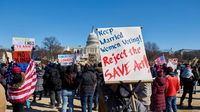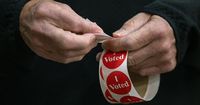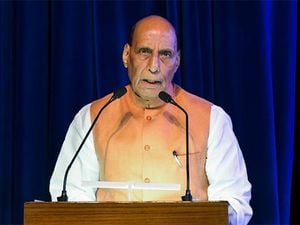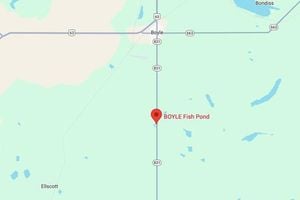ST. PAUL, Minn. — On Thursday, April 10, 2025, Republicans in the U.S. House of Representatives passed the SAVE Act, a controversial measure requiring documented proof of U.S. citizenship for voter registration. If enacted into law, this legislation would mandate that every eligible voter present documentary proof of citizenship, creating additional hurdles for those wishing to participate in elections.
The SAVE Act stipulates that individuals applying for federal voter registration through the mail must also appear in person at their local election office to show proof of citizenship. This requirement raises concerns about accessibility, particularly for the estimated 10% of U.S. citizens of voting age—over 21 million people—who do not have readily available proof of citizenship, such as a passport or birth certificate.
Critics of the bill argue that it will disproportionately disenfranchise millions of voters, particularly those in rural communities, young voters, and individuals who have changed their names due to marriage. In a statement, the Chairs of the Minnesota Legislature’s Inclusive Democracy Caucus, Senator Liz Boldon (DFL-Rochester), Representative Cedrick Frazier (DFL-New Hope), and Representative Emma Greenman (DFL-Minneapolis), expressed their dismay: “Donald Trump and his Republican allies have a long track record of trying to roll back the freedom to vote to bolster their own political power.”
They further asserted, “The SAVE Act is nothing more than an attempt to grab power by suppressing the freedom to vote. This bill will disenfranchise millions of voters who don’t have a passport or birth certificate, and it presents significant obstacles for rural communities, young voters, and anyone who doesn’t have their current name on their original birth certificate.”
As the legislation heads to the Republican-controlled U.S. Senate, its future remains uncertain. While proponents claim the SAVE Act will restore faith in the electoral system and deter noncitizen voting, critics warn that it is a step towards voter suppression.
In California, the implications of the SAVE Act have also drawn scrutiny. The County of Orange Registrar of Voters estimates that assisting voters who are required to provide proof of citizenship in person could exceed $6 million annually. In 2024, Orange County received 633,568 voter-initiated online and mail registration transactions, indicating a significant administrative burden if the new requirements are implemented.
According to a cost analysis, the Registrar would need to hire 59 additional staff members, resulting in a labor cost of over $4.7 million. This includes leasing workspace for new employees at a cost of $93,000 per month and purchasing necessary equipment like computers and scanners. The California Secretary of State, Shirley N. Weber, voiced her concerns, stating, “The SAVE Act would make it harder for all eligible voters to cast their votes and participate in our democracy.”
Weber emphasized that the act would dismantle decades of progress in voter access, affecting over 26.5 million eligible voters in California alone. She noted that existing laws already prohibit non-citizens from voting in federal and state elections, and the new requirements would only serve to create unnecessary barriers for eligible citizens.
Voting rights advocates warn that the SAVE Act could introduce chaos into the election system. Minnesota Secretary of State Steve Simon stated, “We’re going to count on the U.S. Senate to stall or defeat this bill,” emphasizing the potential disruptions it could cause.
At the heart of the SAVE Act is the requirement for individuals to provide proof of citizenship when registering to vote or updating their registration. Acceptable forms of proof include a U.S. passport, military ID, or a certified birth certificate. However, this poses a significant challenge for many Americans, particularly those who have changed their names after marriage and do not have documentation reflecting their current legal name.
About 69 million American women who take their partner's last name after marriage face potential disenfranchisement if their birth certificate does not match their current name. This concern is compounded by the fact that nearly half of U.S. citizens, approximately 146 million people, do not possess a valid passport.
Despite the claims of its proponents, evidence suggests that illegal voting is rare. House Speaker Mike Johnson defended the bill, arguing, “Democrats say it's already illegal to vote as a (non-)citizen, but that doesn't mean that you don't need further enforcement.”
However, many advocates for voting rights argue that the SAVE Act is an undue burden on eligible voters. Helen Butler, executive director of the nonpartisan Georgia Coalition for the People’s Agenda, criticized the legislation, stating, “It’s just an undue burden for nothing because there isn't a problem with noncitizens voting.”
As the bill progresses through Congress, its implications for American democracy remain a contentious topic. Voting rights advocates are urging Congress to reject the SAVE Act, arguing that it undermines the fundamental right to vote and threatens the integrity of the electoral process.
The SAVE Act, if enacted, could fundamentally alter the landscape of voter registration in the United States, raising questions about access, equity, and the future of democratic participation.







